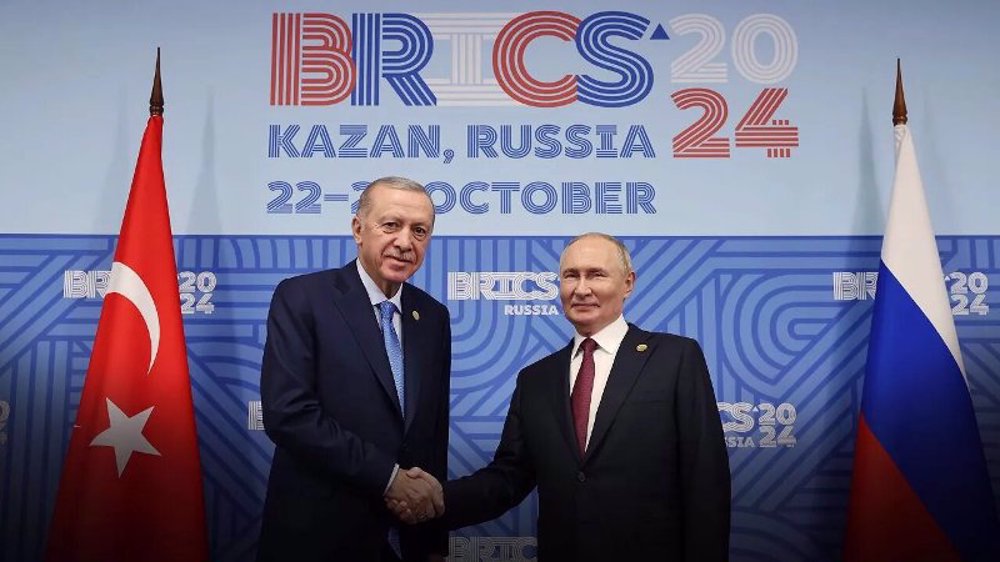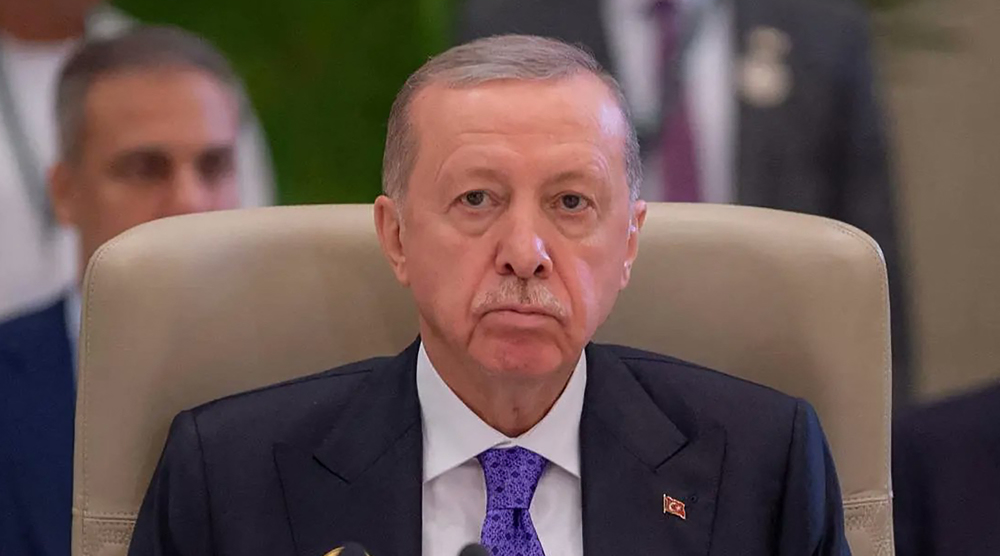EU will continue accession talks with Turkey: Mogherini
The European Union (EU)’s foreign policy chief, Federica Mogherini, says the bloc will continue its membership talks with Turkey despite disagreements with Ankara on human rights issues.
“We are continuing to talk with Turkey,” Mogherini told reporters in the northwestern Slovenian town of Bled, where she attended the 2017 Bled Strategic Forum, on Monday.
“We are not always agreeing on everything,” she said, adding, “There are some issues — especially human rights, fundamental freedoms, the situation of journalists — that are taking our positions very much apart, but talks continue.”
She said the future of the EU’s relations with Turkey would, however, depend on how the talks proceed.
Addressing a panel of the forum later in the day, Mogherini described Turkey as “a key player in a region that is strategically important for us, the Middle East, the Mediterranean.”
Turkey has been trying to accede to the EU since the late 1980s. Formal accession talks began in 2005. The EU has opened 16 out of the 35 chapters required for Turkey to join the 28-nation bloc, but only one of them has so far been concluded.
A purge in Turkey, and a snag in Europe
The talks have effectively been halted since Turkey began a massive crackdown on supposed putschists following an abortive coup in 2016. The EU reacted strongly to Ankara’s purging of thousands of people from organizations and institutions over alleged links to the coup attempt.
The European Parliament voted in favor of halting the membership talks with Turkey in November 2016 over Ankara’s heavy-handed crackdown following the failed coup.
EU heavyweight Germany and Austria have also been outspoken critics of Ankara since the Turkish crackdown and have said the accession talks must end, angering Turkey.
In 2017, government-proposed reforms that turned Turkey’s political system into a presidential one compounded the problem.
German-Turkish bad blood
Germany has been involved in diplomatic brawls with Turkey on other issues as well, and it is sometimes hard to tell whether Berlin’s opposition to Ankara’s membership in the EU is purely over the alleged human rights violations and the constitutional reforms.
On Sunday, Chancellor Angela Merkel, in a TV debate ahead of Germany’s federal elections on September 24, agreed with her main rival, Social Democrat Martin Schulz, that it was “clear that Turkey should not become a member of the European Union,” marking a surprise U-turn from her previous, moderate stance.

German-Turkish relations strained after Turkey refused to allow German lawmakers to visit military personnel at the Incirlik Air Base and another base in Konya in Turkey earlier this year.
Berlin had earlier blocked visits and speeches by senior Turkish officials to members of the Turkish diaspora in Germany ahead of an April referendum in Turkey over the constitutional reforms.
Turkish President Recep Tayyip Erdogan has recently urged the Turkish population in Germany to vote against Merkel in the upcoming German elections.
Separately, Turkey says Germany has granted asylum to officers who were allegedly behind the failed coup. A number of German citizens have since been arrested in Turkey.
Looking to the future
Mogherini said in her Monday remarks that she looked forward to a resumption of the talks with Turkey.
“On the future, I would suggest that we look beyond what is said in electoral campaigns both in Turkey and the European Union. And I am looking forward to the moment we sit together at the table and find what is going to be future of our relations.”
Turkey has previously threatened that a failure to grant it membership in the EU would trigger Ankara’s departure from another deal with the bloc to stem the flow of refugees to Europe.
Under that deal, Turkey has agreed to take back any asylum seekers who land in Greece via Turkish territory in return for cash and accelerated membership talks.
VIDEO | 85% of Yemeni displaced people face daily hunger crisis
US House passes bill targeting charities and pro-Palestine groups
VIDEO | Supporting Gaza genocide
Hezbollah attacks Israeli forces after Lebanese homes blown up
World leaders, states hail ICC arrest warrants for Netanyahu, Gallant
MP: US accountable for possible Israeli 'foolishness' to attack Iraq
VIDEO | Israeli policies strangle Palestinian agriculture, economy
Iran's president offers condolences to Pakistan over terrorist attack










 This makes it easy to access the Press TV website
This makes it easy to access the Press TV website